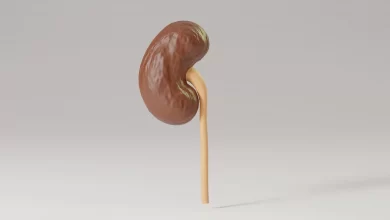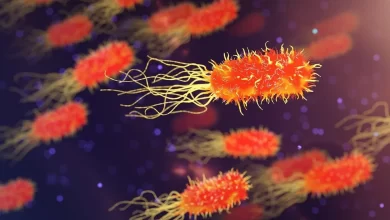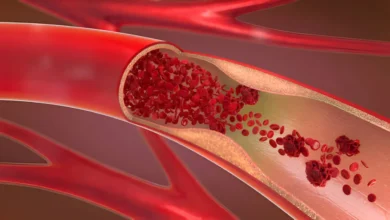The human brain is the most complex organ in our body. This jelly-like mass of tissue, weighing about 1.4 kilograms, contains a mind-boggling 100 billion nerve cells or neurons. From thinking, learning, creating, and feeling emotions to controlling every blink, breath, and heartbeat, our brain is a fantastic control center. It is a structure so amazing that a well-known scientist once described it as “the most complex thing we have yet discovered in our universe.”
- The human brain is more complex than an exploding star or the United States economy.
- There is a rare but fatal brain disease called kuru and also known as laughing sickness. In this disease, the victim goes through a stage of bursting into laughter, and after that, the disease causes ulcerations, and the person eventually dies.
- If all the nerve connection present in the brain is layed in one line end to end, it will stretch about 3.2 million kilometers (2 million miles).
- Our brain gets lighter and lighter as we grow. It starts to lose up to a gram (0.035 ounces) a year as the cells die and are not replaced.
- According to skeletal evidence, our brain has become smaller in the past 10,000 to 20,000 years.
- Our brain is the only organ in the known universe that can contemplate.
- Our brain generates enough electrical energy that can power a light bulb.
- Our brain receives about 100 million pieces of information every moment from our eyes, nose, ears, skin, and receptors inside our body.
- People who suffer from migraines have thicker brains than people who don’t.
- Our brain contains about one hundred billion nerve cells.
- It’s been researched that women that are heavier in weight produce brainier children. Scientist believes that fat stored on woman’s hips contains acids that are very much essential for the development of the unborn baby’s brain.
- Our memory recalls events about seven times faster than they really happen.
- Messages are sent to our brain at around 360 Km/hr (224 miles/hr).
- If we take a quick nap after learning, that can lead to strengthening our memory.
- The human brain is comprised of 75-80% water.
- There is a difference in the brains of males and females as they are wired differently.
- There is a difference in the brains of males and females as they are wired differently.
- Our brain is more active during sleep time than during the day.
- Since we domesticated dogs, Our brains have gotten smaller.
- A single human brain has more switches than all the Internet connections and computers on Earth.
- When we fell asleep, our brain cells shrink.
- An average person has 50 thoughts per minute, 3000 per hour, and 50,000 a day, but 95% of them are the same as the day before.
- Only 4% of the brain’s cells work, and the remaining cells are kept in reserve.
- The adult human brain is about 2% of total body weight and weighs about 1400 g at the age of 20 and is decreased to 1300 g at the age of 65.
- Vitamin E protects our brain cells from damage which is caused due to alcohol consumption.
- When we see an image, our eyes capture it as an inverted image. It is our brain that interprets it correctly makes us see the upside-down image into a normal erect image.
- When a baby is born, its connection in the brain increases from 50 trillion to 1 quadrillion in the first month of its life.
- The human brain is made up of 40% grey matter and 60% white matter.
- The brain does not stop sending electric wave signals until approximately 37 hours after death.
- Our teenage years do have an impact on how we feel; the structure of our brain changes during the teen years, and it even affects impulsive behavior.
- The total surface area of the human brain is about 25000 square cms.
- The brain uses 20% of our body energy and makes up only 2% of our body weight.
- A newborn baby’s brain grows almost three times faster during the first year of life.
- Our brain’s long-term memory can hold as many as one quadrillion separate bits of information in its lifetime.
- Our brain keeps on developing until the late 40s.
- From all the oxygen that we breathe, 20% goes to the brain.
- Our brain is roughly 140mm wide, 167mm long, and 93mm high.
- Women use both left and right parts of the brain to listen while men listen with the help of only the left side.
- Technically, our brain has the capacity to store everything you experience, see, read or hear. However, the real issue is to recall and whether you can access that information when needed.
- The Nervous system transmits messages to the brain at the speed of 300 km/hr (180Mph).
- Our brain is very soft in nature, and the touch feels like you are touching butter.
- On average, 100000 chemical reactions take place in our brain every second.
- The cells of the heart and brain do not multiply throughout our lifetime.
- The human brain’s memory capacity is equivalent to 2.5 million gigabytes (2.5 petabytes).
- The human brain’s memory capacity is equivalent to 2.5 million gigabytes (2.5 petabytes).
- It is not possible to tickle ourselves. This is because the cerebellum, a part of the brain, warns the rest of the brain parts that you are about to tickle yourself. Since your brain knows this, it ignores the sensation.
- If our sense of smell is affected, the sense of taste is also affected as the brain interprets signals from both tongue and nose.
- The human brain stores memories of fear.
- The neurons in our brain are built differently, and information travels along with them at different speeds. This is why sometimes we take time to recall information, and sometimes things are recalled instantly.
- Living brain cells are bright pink in color.
- The amazing computational power of your brain requires only about 10 watts of power to operate.
- Our brain is the most powerful computer and has a processing speed of more than 3000 GHz.
- The right side of the brain controls the left side of the body, and the left side of the brain controls the right side of the body.
- A healthy Child’s brain can be substantially larger than a neglected Child.
- The brain doesn’t feel pain: Even though the brain processes pain signals, the brain itself does not actually feel pain as there are no pain receptors for it.
- People who ride on roller coasters have a higher chance of having a blood clot in the brain.
- Once a human reaches the age of 35, the person will start losing approximately 7000 brain cells a day.
- When we touch something, the message is sent to our brain at 200 Km/hr (124 mph).Our brain can not perform two tasks that require high-level brain function at the same time. So multitasking is not a thing for us.
- Wearing a helmet can reduce the risk of brain injury by as much as 80%.
- Our brain has around 160934.4 Km (100,000 miles) of blood vessels.
- The human brain consists of 60% fat, making it one of the fattiest organs in the body.
- During early pregnancy months, approximately 250,000 neurons develop per minute.
- A woman’s brain shrinks during the period of pregnancy and takes up to six months to regain its full size.
- When we sleep at a new location, our brain processes it as a danger and stays half awake.






